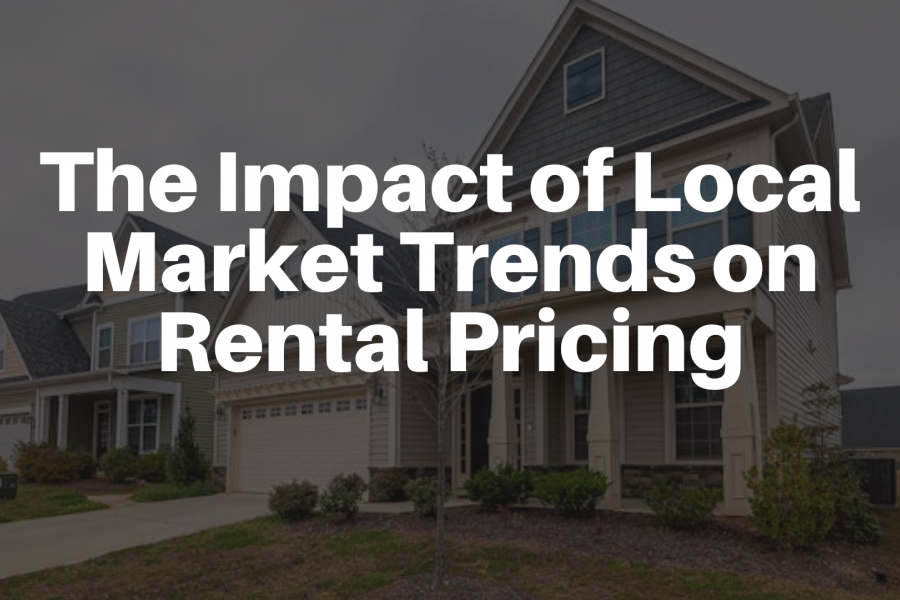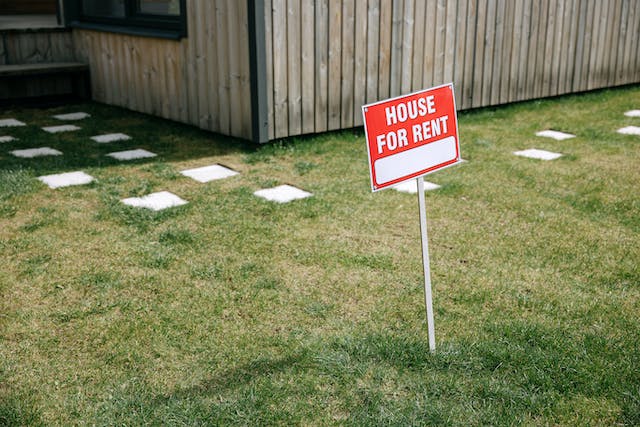The Impact of Local Market Trends on Rental Pricing

- Decoding the Pulse of Your Local Housing Market
- What Today’s Market Tells Us About Tomorrow’s Rentals
- Key Forces Shaping Neighborhood Values
- What Moves the Market
- How Shifts in Sales Drive Shifts in Rents
- When Housing Trends Meet Monthly Rent Checks
- Turning Market Insights into Rental Success
- How Evolve Helps Landlords Maximize Value in Any Market
- Bottom Line
Key Takeaways
- Optimal rental prices can be affected by many different things, not just property values.
- It’s important for landlords to be aware of these constant shifts so their rental remains relevant.
- Partnering with a property management team can keep you up to date on market shifts and optimize your rental value.
Rental prices are shaped by many factors in the local housing market. In the Denver Metro and surrounding areas, shifts in population, employment, and housing availability directly affect what landlords can charge. For landlords, staying aware of these market movements is key to keeping rentals profitable and competitive.
Evolve Real Estate and Property Management has put together this article to explain how local market trends affect rental pricing, what influences these changes, and how landlords can use this knowledge to protect their investments.
Decoding the Pulse of Your Local Housing Market
To understand rental pricing, it is important to look at the bigger picture of the housing market. Home sales, new construction, and the balance between supply and demand all shape the rental environment.
When the supply of homes for sale is low, more people turn to renting, which increases demand. When new developments bring more units onto the market, landlords may face more competition, slowing down rent growth or keeping prices flat.
What Today’s Market Tells Us About Tomorrow’s Rentals
Rental pricing reflects both current housing conditions and expectations for the future. If home prices in Denver continue to rise, many residents who might otherwise buy a home will rent longer. This increases rental demand and gives landlords room to adjust prices.

Economic uncertainty or higher interest rates can also extend rental periods as buyers hesitate. These conditions give landlords insight into where demand is heading and help guide pricing decisions.
Key Forces Shaping Neighborhood Values
Every neighborhood in the Denver Metro area is influenced by unique factors that shape property values and, in turn, rental pricing. Employment opportunities, access to public transportation, school quality, and the availability of local amenities all affect where people choose to live.
For example, areas close to new job hubs or transit lines often see a surge in housing demand. Landlords with properties in these neighborhoods can often command higher rents compared to less connected areas. Similarly, communities with growing populations or strong school districts remain attractive to renters, which stabilizes rental demand and helps maintain steady income for property owners.
What Moves the Market
Beyond neighborhood-level factors, larger economic conditions also play a role in shaping the rental landscape. Job growth in the Denver region often translates to more people moving into the area, creating greater competition for housing. When employment is strong, tenants are also more likely to afford higher rents.
Interest rates are another key factor. When mortgage rates rise, potential buyers may choose to rent instead of purchasing a home, increasing rental demand. On the other hand, if rates fall, some renters may transition into homeownership, creating a shift in the pool of available tenants. Landlords who stay aware of these conditions can better prepare for both high-demand and slower rental periods.

How Shifts in Sales Drive Shifts in Rents
The relationship between the home sales market and rental pricing is close. In times when home sales slow, landlords often see more long-term renters. When the market for buying is competitive, people may postpone purchasing and rent instead. This creates upward pressure on rental prices.
On the other hand, when homes are selling quickly and prices are stable, some renters decide to become homeowners, easing rental demand. These shifts mean that landlords need to watch not only the rental market but also sales activity, since both markets are linked and influence each other directly.
When Housing Trends Meet Monthly Rent Checks
The effect of housing trends becomes most visible in the monthly rent tenants pay. If demand for rentals outpaces supply, landlords can typically adjust rents upward. However, pushing rent too high can lead to longer vacancy periods if tenants start looking for more affordable options in nearby neighborhoods.
For landlords, the goal is to balance maximizing rental income with keeping occupancy rates steady. By paying attention to rental market reports, neighborhood changes, and regional housing trends, landlords can avoid sudden surprises and set rents that attract reliable tenants while protecting long-term profitability.

Turning Market Insights into Rental Success
Understanding these patterns is one thing, but applying them effectively requires experience. This is where Evolve Real Estate and Property Management steps in. By combining market knowledge with hands-on property management, Evolve helps landlords set rents that reflect current demand while keeping properties competitive.
Evolve also considers property-specific factors such as location, features, and condition when recommending rental values. This individualized approach ensures that landlords receive accurate guidance instead of relying on general assumptions about the market.
How Evolve Helps Landlords Maximize Value in Any Market
Whether the market is trending upward, leveling off, or facing a slowdown, Evolve works with landlords to find the best path forward. In a high-demand period, the team ensures that rents are priced to take advantage of strong tenant interest without driving away quality renters. In slower times, Evolve focuses on tenant retention, effective marketing, and property upkeep to minimize vacancies and protect rental income.
By staying ahead of market trends and managing the daily responsibilities of property ownership, Evolve provides landlords with the confidence that their investment is being handled with care and expertise.
Bottom Line
Local market trends directly influence what landlords can charge for rent. Housing supply, home sales activity, job growth, and interest rates all shape the rental landscape in the Denver Metro area. By understanding how these factors connect, landlords can make informed decisions that help them maintain steady rental income and attract reliable tenants.
Evolve Real Estate and Property Management helps landlords stay ahead of these shifts. With local market expertise and a personalized approach, the team ensures that your rental property is priced correctly and managed effectively. If you want to protect your investment and maximize returns in today’s changing market, contact Evolve Real Estate and Property Management today to learn how we can support your goals.
